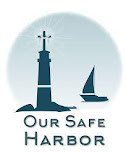Dec. 12th, '22 -
We’ve all been there. During the holidays you order something online and anxiously await its arrival. But then your package doesn’t come when the seller said it would. And worse, you hear nothing. Your happy anticipation is turning to anger and frustration. So now what?
If you didn’t get your stuff:
- First, contact the seller. Most businesses will work with you to resolve the problem and keep you as a customer.
- If that doesn’t work, you still didn’t get your order and the charge shows up on your credit card statement, dispute the charge.
- If you paid by debit card, contact your debit card company (often your bank or credit union). Ask if they can help you. This sample letter for disputing debit card charges can help.
Sometimes, you can head problems off by doing some research before buying from an unfamiliar online store.
- Check out the company or product. Search online for the name plus words like “review,” “complaint,” or “scam.” See what other people say about it. And read the seller's description of the product carefully. If they offer name-brand goods at steeply discounted prices, they might be fakes.
- Pay by credit card. You’ll get protections under federal law, so you don’t have to pay for things you ordered but didn’t get.
A word on timing, as the holidays approach: online sellers have to ship when they (or their ads) say they will. (The law says so.) If they don’t ship then, they have to tell you (and give you a chance to cancel and get a full refund). If they don’t give a shipping date, they have 30 days to ship from the date of your order.
If you suspect a scam, report it to the FTC at ReportFraud.ftc.gov.


.jpg)

.png)









.png)



.png%20%20Cyber%20command%20(2).png)



.png)














